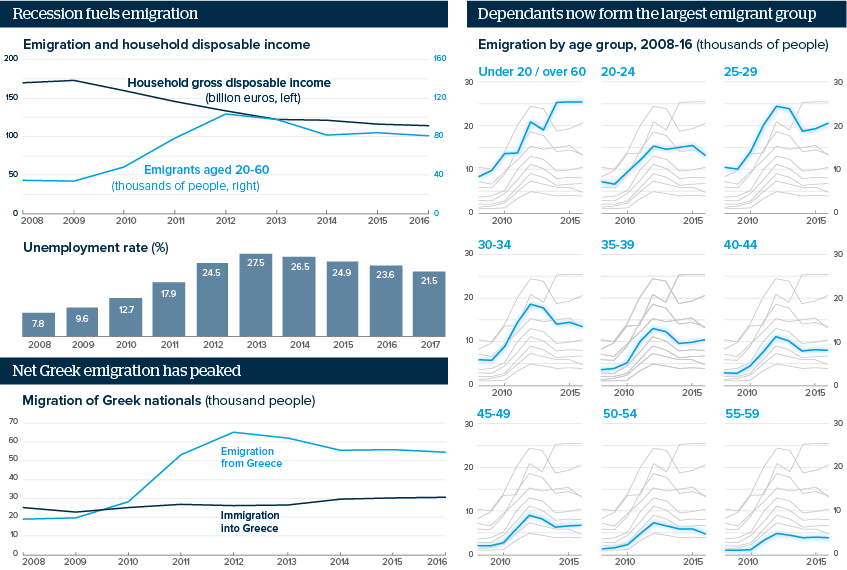Greece will struggle to reverse ‘brain drain’
Net emigration of Greek nationals is slowing, but weak economic fundamentals are pushing out others, too
Source: Hellenic Statistical Authority (Elstat); Eurostat; Bank of Greece; Hellenic Observatory
Outlook
The economy’s slow revival will confirm a trend towards less emigration across most age groups. In 2016, net emigration of Greek nationals fell to its lowest point since 2010. Yet the ‘brain drain’ will be difficult to reverse, as only strong economic incentives or growth will entice non-Greeks (49% of all emigrants in 2016) to return. More dependants (age groups 0-20, 60+) leaving in 2014-16 suggests a shift towards more permanent settlement abroad.
The outflow of engineers and doctors (up to 17,000 annually) will hurt future recovery in the healthcare and construction sectors. Highly qualified Greek specialists, who traditionally emigrated to the United Kingdom, will consider Germany, the Netherlands and France as alternatives post-Brexit. Language will act as a barrier.
Impacts
- Targeted state support for young entrepreneurs could ease the outflow of human capital abroad.
- Merit-based employment could combat Greece’s brain drain with sectoral competitions, grants and research contracts.
- Knowledge platforms connecting Greeks abroad and at home could tap into emigrants’ intellectual potential.
See also
- Anti-virus measures will hurt Greek economic revival - Mar 24, 2020
- Clientelism will not avail Greek ruling party in 2019 - Jan 28, 2019
- Greece’s political and economic prospects are fragile - Aug 20, 2018
- Greece faces losing a whole generation of workers - Dec 30, 2016
- More graphic analysis
